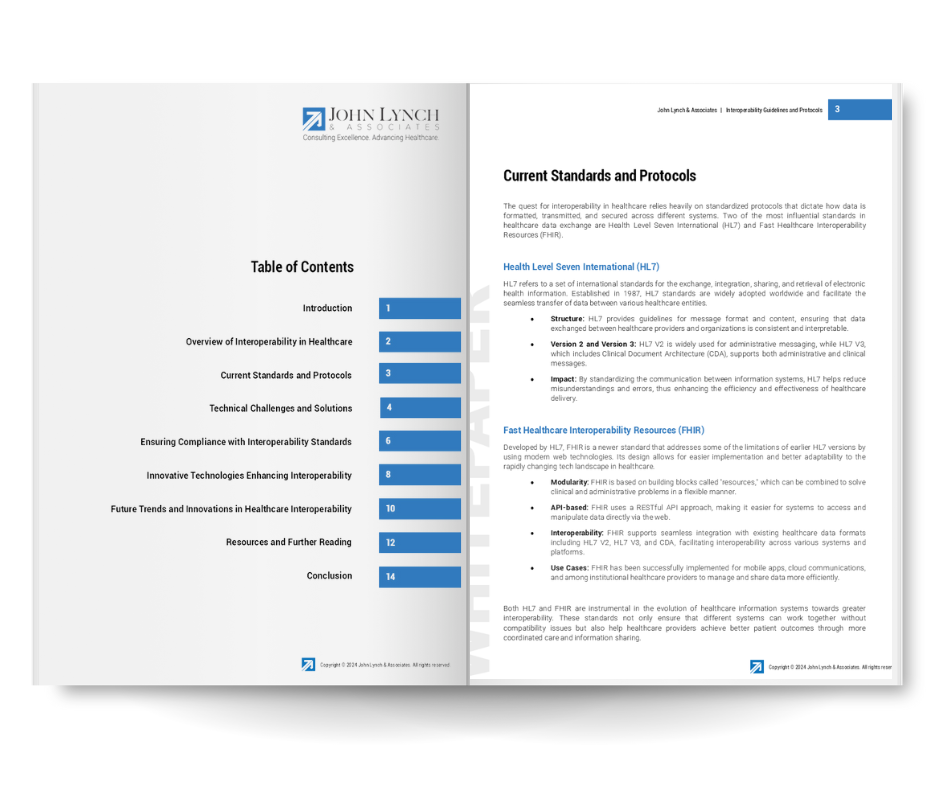Healthcare Interoperability Standards: A Practical Framework for Data Exchange
Understanding the role of interoperability in modern healthcare.
This whitepaper provides a detailed examination of interoperability standards and protocols used to support the secure and efficient exchange of health information across clinical systems. Interoperability remains foundational to coordinated care, data-driven clinical decision-making, and operational efficiency. Yet, the process of implementing interoperability standards is complex, requiring thoughtful planning, system evaluation, and ongoing governance.
This document outlines key standards, technical considerations, and strategies healthcare organizations can use to align technology with clinical, regulatory, and operational goals.
What you will learn.
- The foundational role interoperability plays in clinical coordination, operational efficiency, and patient outcomes.
- Key standards including HL7 and FHIR, and how they support structured data exchange and system integration.
- Common interoperability challenges, including legacy systems, data quality variation, and regulatory complexity.
- Technical and governance strategies for integrating interoperability standards into existing EHR ecosystems.
- Emerging technologies shaping the next phase of interoperability in healthcare, including APIs, AI-enabled data harmonization, and blockchain-based data validation.
John Lynch & Associates advises healthcare organizations across the United States on interoperability strategy, system integration, compliance frameworks, and change management focused on effective, secure, and sustainable data exchange.

If your organization is working to meet healthcare interoperability standards, our Healthcare Project Management services ensure your systems, workflows, and teams align seamlessly throughout the implementation process reducing risk and improving project outcomes.
